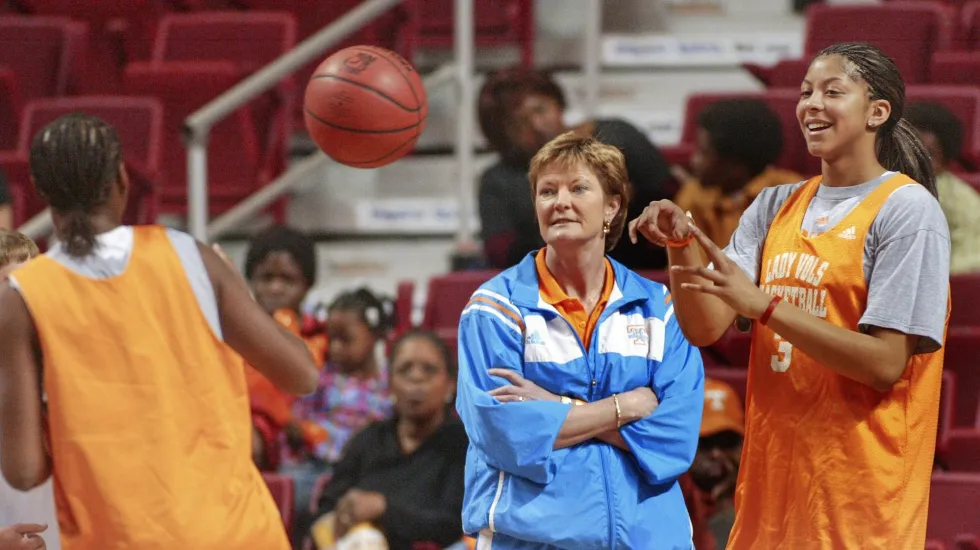
In eighth grade, growing up in the western suburbs of Chicago, Candace Parker wrote a paper on Title IX.
Five years later, after graduating from Naperville Central, Parker played for a Title IX pioneer in Hall of Fame coach Pat Summitt. Fourteen years after graduating from Tennessee and being selected with the No. 1 overall pick in the 2008 WNBA Draft, Turner Sports, in conjunction with Parker, Scout Productions and Baby Hair Productions, are releasing a documentary, ‘‘Title IX: 37 Words That Changed America,’’ on the societal and cultural impact of this legislation.
“Fifty years later, I sit here because of Title IX,” Parker said. “Although we have so many wins, we have so much further to go.”
The documentary, which airs at noon Saturday on TBS, has been in the making for three years. After meeting with her agents and discussing plans, the impact of Title IX was something Parker wanted to document.
Women’s history in sports is well-documented throughout the documentary as pioneers such as 12-time Grand Slam singles champ Billie Jean King, former Secretary of State Condoleezza Rice and Seattle Storm co-owner Ginny Gilder share personal battles they endured before and after this legislation was enacted.
Rice was a student at the University of Denver when Title IX was passed. At the time it was passed, the university only had three women’s programs. In the documentary, Rice details how even though the school had a gymnastics program, funding and support were nonexistent. Her team, at one point, had to have a bake sale to pay for their trip to a regional tournament in Utah.
Four years after the signing of Title IX, Gilder and nearly 20 of her rowing teammates strode into the office of Joni Barnett, Yale’s director of women’s athletics, and revealed their naked bodies. Written on the backs of every athlete was “Title IX.” After enduring meager training conditions that included the women’s team waiting in the cold after practice to use the locker room while the men’s team showered, they demanded Title IX be respected and enforced at Yale.
Their protest became well-known, with the image of Chris Ernst reading a list of the injustices, including no locker room or equipment manager, being circulated globally.
Forty-five years after the Yale women’s protest, Sedona Prince of Oregon shared a video that detailed the inequities between the men’s and women’s weight room at the 2021 NCAA Tournament. After seeing Prince’s video, Gilder was reminded of the inequalities her team experienced.
“What I thought when I saw that was ‘have we made no progress?’ ” Gilder said in the documentary.
On March 15, Rep. Carolyn B. Maloney, D-N.Y., who chairs the House Oversight and Reform Committee, Rep. Jackie Speier, D-Calif., co-chair of the Democratic Women’s Caucus, and Rep. Mikie Sherrill, D-N.J, released new documents highlighting extensive gender inequities. Despite the law firm Kaplan Hecker and Fink LLP’s releasing two documents that included 39 recommendations for the NCAA to make programs more equitable following the 2021 March Madness tournament, the Committee found the NCAA has failed to implement key recommendations.
This issue of a lack of proactive enforcement of Title IX is addressed in the documentary. According to the Women’s Sports Foundation, founded by King, girls receive 1.3 million fewer opportunities in sports than boys.
Viewers will get a history lesson with this documentary along with tangible examples of how they can help create change in their communities.
“For so long, women’s sports just existed as something that had to be there,” Parker said. “Now, as we look at [women’s sports] as an investment, I think we can start moving things forward.”







